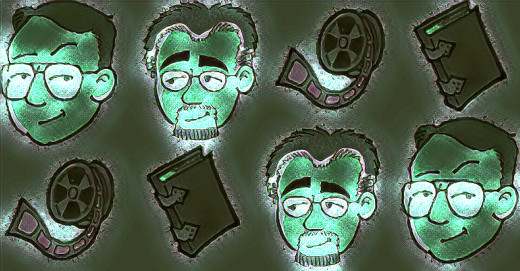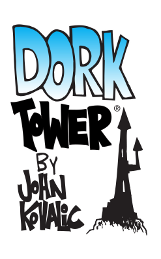Ken and Robin Consume Media: Gallic Noir and Two Films Named Johnny
April 21st, 2020 | Robin

Ken and Robin Consume Media is brought to you by the discriminating and good-looking backers of the Ken and Robin Talk About Stuff Patreon. Each week we provide capsule reviews of the books, movies, TV seasons and more we cram into our hyper-analytical sensoriums. Join the Patreon to help pick the items we’ll talk about in greater depth on a little podcast segment we like to call Tell Me More.
Recommended
Quai des Orfèvres (Film, France, Henri-Georges Clouzot, 1947) Jealous husband of stumbles onto the freshly-murdered body of a lecherous producer who had designs on his wife, an ambitious music hall singer. Noir elements give way to the distinctly Gallic rhythms of the policier, with rich evocations of the life of the vaudeville house and the interrogation room.—RDL
Good
Echo in the Canyon (Film, Andrew Slater, 2018) Jakob Dylan assembles a team of current musicians for a tribute album and concert paying homage to the mid-sixties L.A. music explosion, interviewing key figures of the Laurel Canyon scene including Michelle Phillips, Stephen Stills, David Crosby and Brian Wilson.—RDL
Johnny O’Clock (Film, US, Robert Rossen, 1947) Targeted as a suspect in a crooked cop’s disappearance, a hardboiled casino manager (Dick Powell) falls for the sister of a secondary victim (Evelyn Keyes.) I wouldn’t call this noirish crime drama memorable, except maybe for its winning frenemy relationship between Powell and Lee J. Cobb as a dogged police inspector.—RDL
Okay
Sex & Drugs & Rock & Roll (Film, UK, Mat Whitecross, 2010) Dogged by his childhood treatment as an institutionalized polio survivor, chaos-making rocker Ian Dury (Andy Serkis) rises to unlikely pop punk stardom. If I might be permitted a Thing I Always Say, this biopic wraps a strong performance in an unfocused script, because real lives don’t have throughlines.—RDL
Not Recommended
Blind Alley (Film, US, Charles Vidor, 1939) When an escaped gangster (Chester Morris) kills a guest during a hostage-taking in his country home, a stentorian professor (Ralph Bellamy) decides to break him with the power of psychoanalysis. No better case study exists of Hollywood’s flirtation with extremely literal Freudianism.—RDL
Johnny Eager (Film, US, Mervyn LeRoy, 1941) Racketeer with a flair for elaborate ruses (Robert Taylor) leverages a young student (Lana Turner) who loves him against her district attorney father (Edward Arnold.) Overwritten crime drama wants the audience to wait for a charming but remorseless heel—or as we would say today, a psychopath—to be redeemed by love. Which is not how any of that works.—RDL















Leave a Reply